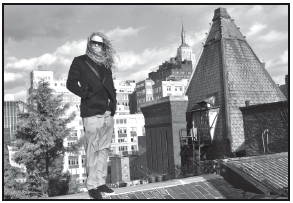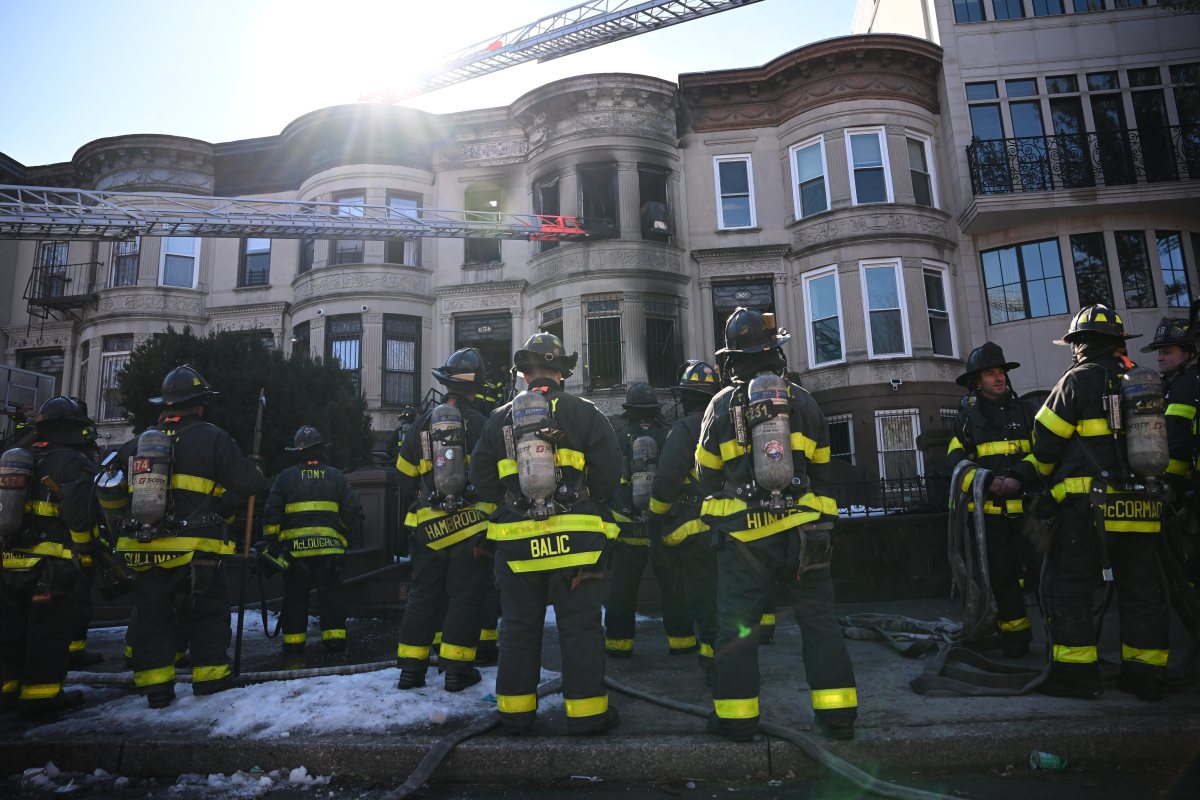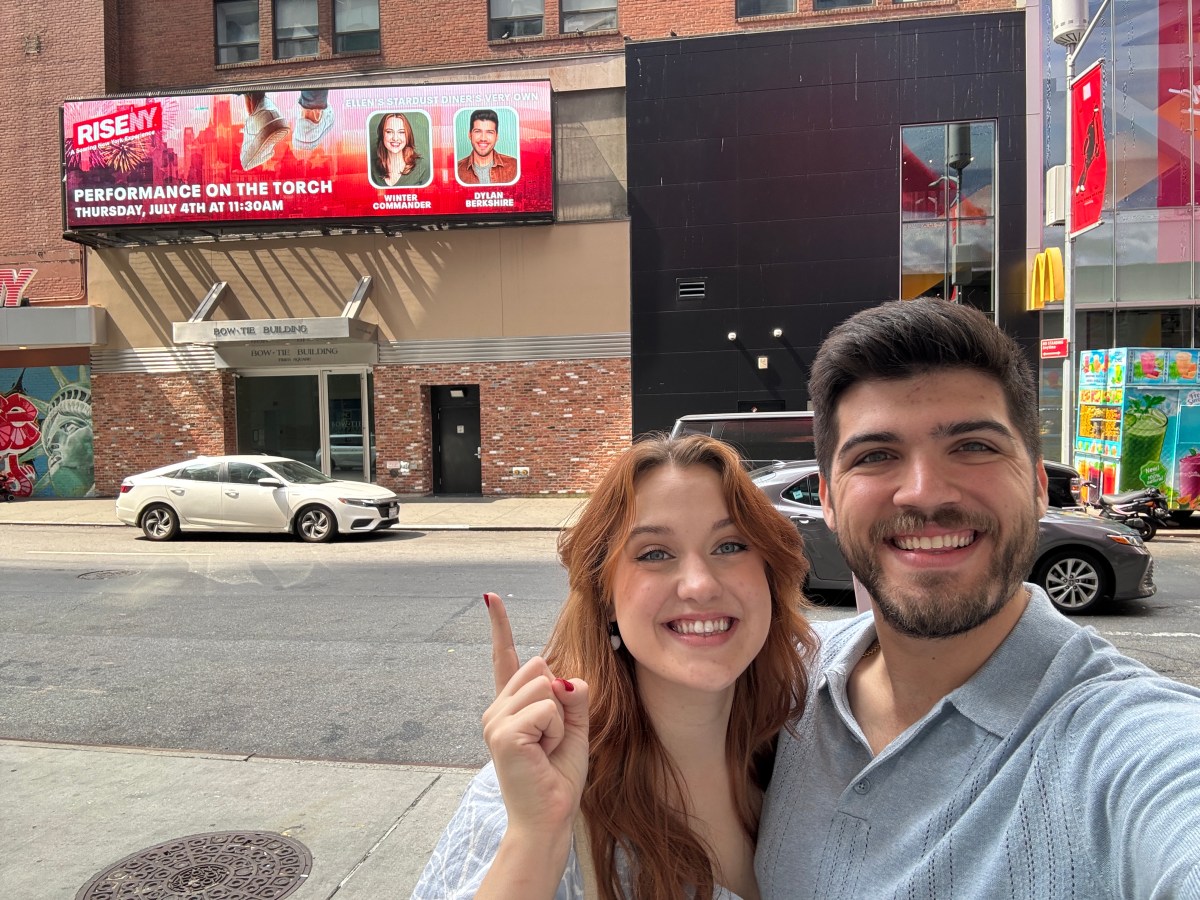By Patrick Hedlund
A blurb in the “History” section of the Chelsea Hotel’s recently revamped Web site touts some of the countless boldface-named bohemians to have taken up residence at the legendary W. 23rd St. lodge. There are obligatory mentions of Janis Joplin and Bob Dylan, as well as artists Larry Rivers and Willem de Kooning.
After trotting out a few more marquee names on the newly burnished site, like playwright “Eugene O’Neil” [sic] and composer “Virgil Thompson” [sic], the write-up concludes, asking simply: “Who will be next?”
Judging by the hotel’s policy to stop renting to long-term residents — a practice that ended with the contentious ouster of 50-year manager Stanley Bard two-and-a-half years ago — it’s not actually tenants of the aforementioned group’s artistic pedigree that the Chelsea wants staying inside.
In fact, some of the hotel’s more high-profile permanent residents in the arts are now being shown the door following a recent round of eviction proceedings by management. Renters, like multimedia artist Sam Bassett, filmmakers Steve Willis and Jeff Courtney, and West Chelsea gallerists Robert Miller and Daniel Reich, have been served eviction papers over the past couple months, threatening to further deplete the building of its franchise character.
Chelsea Hotel minority shareholders David Elder and Marlene Krauss, descendants of the hotel’s original owners, wrested managerial control away from the famously artist-friendly Bard in 2007, and have since made clear their intention to lure tourists by playing off the hotel’s reputation as a sanctuary for art and its makers.
So, despite the hotel’s continued attempts to trade on its cachet as a magnet for creative types — including the recent recruitment of a high-powered public-relations firm to pitch stories about the hotel’s history — management appears to have no plans of preserving the critical mass of artists currently contributing to the Chelsea’s legacy.
Sam Bassett in his apartment at his work station, where he produced and edited six feature-length documentaries.
“This place, it’s not exactly inexpensive, depending on what your situation is,” said Bassett, who pays $7,500 per month to inhabit the hotel’s 10th-floor penthouse apartment, once occupied by actress Sarah Bernhardt. He negotiated a two-year sublease with Bard just before the manager’s expulsion — passing the gatekeeper’s famously stringent approval process for allowing in long-term tenants — and immediately began to flourish as a filmmaker and friend to the hotel’s artistic community.
During Bassett’s time at the Chelsea, the 32-year-old produced, directed and edited six feature-length documentary films, including tributes to elderly tenants, like reclusive artist Bettina Grossman and drag performer/civil rights activist Stormé DeLarverie. (“Bettina,” Bassett’s film about Grossman, chronicles how the filmmaker befriended the aging and isolated artist, helping to organize her vast, scattered body of work in order to stave off eviction.)
Bassett’s original sublease expired this past summer, and management followed up with its eviction case in October. He noted that management initially served papers the day after he premiered his most recent documentary, “Stanley Bard,” which lovingly profiles the exiled manager’s half-century at the hotel’s helm.
But rather than engaging management to try to negotiate a new lease — which Bassett believes would be feeding into the ongoing battle between the hotel’s staunch pro-Bard tenants and the current regime — he has decided to walk away without protest.
“If they don’t understand, if they don’t get it, I’m very grateful for the two-and-a-half years I’ve been here,” Bassett said recently, as he stood on the hotel’s rooftop next to his apartment overlooking W. 23rd St. Nearby, a longstanding rooftop garden was dismantled nearly a year ago per city order — a move some suspect was initiated by management as part of a plan to bring a bar to the penthouse.
“To observe the effect of people fighting for their space and fighting for things, it kills the beauty of the creative spirit,” Bassett said. “And for me, there’s a whole world out there, and I think the best thing one could do is realize that it’s not about where you live, it’s about what you do, about your follow-through — how epic can you go in your creation.”
One of Bassett’s biggest contributions to the hotel, depending on whom you ask, might be caring for some of the Chelsea’s aging permanent tenants. In addition to helping the elderly Grossman tidy up her unorganized and overstuffed apartment, he also agreed to look after the 90-year-old DeLarverie to ensure she keeps a healthy lifestyle and, consequently, her room.
“There’s nobody taking care of these people,” said Bassett, who introduced the world, or at least select audiences, to Grossman’s prodigious body of work in his film.
For her part, the mostly wheelchair-bound Grossman does not want to see Bassett go.
“I hate it,” she said of the news of his imminent departure. “A woman needs protection, and Sam is a great protector.”
Bassett, whose résumé also includes photography and his original tape-sculpture designs that grace some of the hotel’s walls, has spent all his days at the Chelsea during the tumultuous reign of Elder and Krauss. The pair’s stewardship has seen failed attempts to install a permanent management team and vocal resistance by some long-term residents, who see the shareholders’ efforts to make the hotel into a boutique operation as erasing the very heritage management is trying to trumpet.
“These people have really created a poisonous atmosphere, and I’m up here [in the penthouse], and it’s somewhat protected, but you still have to come through this building,” Bassett said of the battleground that is the Chelsea today. With curly blond hair dangling far past his shoulders, he speaks about the creative process with a buoyant idealism that is only offset by a growing fear for the building’s future.
“If you don’t protect those people, and if you’re not sensitive enough to understand those people, then you lose it,” Basset added of the Chelsea’s fading identity. “Then the next thing you know, you’ve got a hotel that maybe at two different periods has been magnificent, but is basically like a Holiday Inn.”
Elder — the hotel’s vice president, who assumed daily front-desk duties in early 2009 after the resignation of a second consecutive outside manager — said all the eviction proceedings amount to standard landlord procedure for residents who don’t pay rent.
“I think what’s going on here is not different than any other place,” Elder said. “People are falling behind on their rent, and that’s pretty much what you’re dealing with. At a certain point, we have to respond to that. I don’t know if there’s anything extraordinary going on here.”
Added Krauss, the hotel’s president, “Most any business has the right to ask the people who are staying there to pay their rent.”
It wasn’t long ago that Elder arranged a month-long stay for a Canadian artist in exchange for a pair of paintings, and he recently oversaw the installation of a new plaque at the hotel’s entrance commemorating the residency of musician/poet Leonard Cohen. This is in addition to offering one of the building’s vacant ground-floor retail spaces for an art show in June — an exhibition that included some of Bassett’s work — and reinstituting guided tours through the hotel that pass by some of Bassett’s tape sculptures. (An image in the Chelsea Hotel’s November “Concierge Newsletter” even features one of Bassett’s designs in the background.)
“Over all, we do think we are supportive [of the artist residents],” stated Elder, who noted his own father, Lonnie Elder, is a celebrated screenwriter and the first African-American to earn an Academy Award nomination for best screenplay. The evictions, he added, are “kind of normal practice for what buildings do in these situations,” regardless of a tenant’s notoriety.
While Bassett’s eviction case apparently stems from an expired lease, the other tenants’ situations all come down to “issues of rent,” Elder said. Management has pursued similar mass evictions in the past — acknowledging in court papers a desire to reclaim and renovate more than 15 percent of the long-term tenants’ rooms for transient use — but few efforts until this point have so noticeably targeted artist residents.
Scott Griffin, a producer who is a 16-year resident of the hotel and heads its tenants association, said management “is really trying to provoke people into being late on their rent” by not actively collecting monthly payments, and then following up with eviction proceedings. “Judging from the paperwork that I’ve seen, including my own, it appears that David Elder may be keeping two sets of books, and that he has simply lost track of what the actual record is,” Griffin charged. “The arrears in question appear to be grossly exaggerated, probably to boost the earnings projections of the hotel for the shareholders.”
Griffin said “abysmal” occupancy rates and what he called a failed business plan have led management to scramble to make up the difference.
“Desperate people do desperate things,” he noted. “They’re lucky to make payroll.”
Most of the half-dozen or so other tenants eyed for eviction either refused to speak on the record, citing the sensitivity of the proceedings, or did not return requests for comment. Some, including Steve Willis and Daniel Reich, had their cases cleared or are currently negotiating with management.
Reich’s eviction, which is apparently on hold as Elder “worked something out with him,” seems curious if only because the gallerist organized multiple exhibitions at the hotel throughout his nearly five-year residence. Reich did not return multiple calls for comment.
Bard had handpicked Robert Miller, a West Chelsea gallerist who also currently lives on the hotel’s 10th floor, to move in at the end of 2006, just before Bassett arrived. Miller lives in the former studio of renowned painter John Sloan.
Filmmaker and 15-year Chelsea Hotel resident Jeff Courtney lives next door to the room once occupied by Bob Dylan on the second floor. A minor firestorm erupted last year when the city learned the hotel had performed illegal renovation work on the room without proper permits, resulting in the filing of a stop-work order to cease construction.
With so many questions over how the hotel plans to overhaul the building as part of management’s previously stated $15 million capital-improvement plan, one could speculate that Bassett, Miller and Courtney’s rooms sit in opportune locations for renovation to transient use.
Neither Elder nor Krauss would comment specifically on possible plans for a penthouse bar, though Krauss did say that, currently, “There’s no plans to build anything on the roof.”
As for Bassett, he intends to leave at the end of this month for a destination unknown. Tenants’ artistic credentials might have been enough to admit or protect them at the Chelsea Hotel in the past. But fighting against forces unwilling to appreciate the “magic” these residents provide runs counterintuitive to the creative lifestyle, he explained.
“My heart is to stay, and one would hope that the people at the helm would realize who they’re kicking out,” Bassett said. “They should look at the plaques on the front of the building and look at the work that those people did and analyze history to be able to see who they’re dealing with, but they’ve not done that. And in them not doing that, they’ve created a very poisonous environment for many people who are very sensitive and very scared. And when fear enters the artistic sphere for artists, that’s a bad combination. There can be no fear.”



































